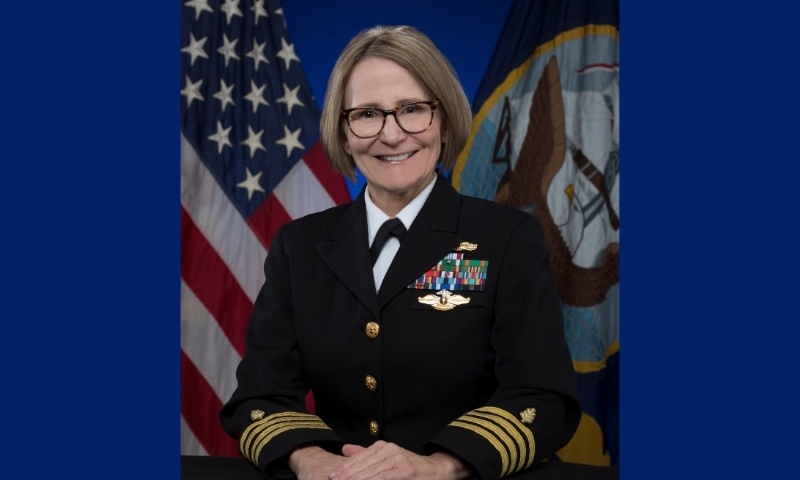U.S. Navy Captain Credits School of Nursing for a Strong Preparation for Her Future

Becoming a nurse was a practical decision for Julie Ann Darling, who hails from Norfolk, Virginia. After graduating high school and working in several industries, she lived paycheck to paycheck. By age 26, she had had enough and realized she needed a college degree to secure a sustainable income. She decided that nursing was a good option.
Darling is now a Captain in the U.S. Navy and is board-certified as an Acute Care Nurse Practitioner (ACNP-BC), a Certified Clinical Nurse Specialist (CCNS), and a Certified Critical Care Nurse (CCRN). This past May, she earned her Doctor of Nursing Practice in the Executive Leadership Track from the School of Nursing.
"Navy Medicine provided me with a myriad of leadership opportunities, and Duke School of Nursing’s DNP allowed me to codify and translate them into practice," Darling said.
Capt. Darling chose the School of Nursing for several reasons, including its consistent ranking among the top DNP programs in the U.S. She also had friends who are DNP alumni who spoke highly of the program and faculty.
Although she did not live near Duke University, the drive to campus was just under five hours, making occasional visits feasible. While studying at the School of Nursing, Darling felt highly supported throughout her journey, especially when she had to change her track midway due to an unexpected military move.
"The faculty at Duke is focused on student success, and it shows," she said. "I never felt like I could not reach out to any of my faculty for assistance, advice, or mentorship."
Darling appreciated how approachable her instructors were and valued their availability for guidance. "The level of engagement was impressive, and I have recommended the School of Nursing’s DNP program to many colleagues for that reason alone," Darling said. She noted that the Duke VA department was absolutely fantastic to work with.
The School of Nursing's commitment to health equity has also influenced Darling. "It allowed me to view healthcare outside of the military lens," she said. Addressing healthcare disparities is particularly important to her.
With about four years left on active duty before she retires, Darling is already planning her next steps. She hopes to put her Executive Leadership DNP to use working with organizations on resiliency strategies and strategic planning.
"This program prepared me well for my future," she said. "I truly believe my DNP will open doors to me that may not have been open."